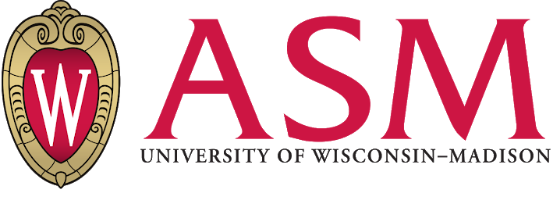ASM Urges UW-Madison to Meet Student Financial Needs
Posted: 2021-04-13 18:29:17 Expiration: 2050-04-21 00:29:17
 Associated Students of Madison
Associated Students of Madison
333 East Campus Mall, 4301 Student Activity Center
Madison, WI 53715
Website: asm.wisc.edu Phone: 608.265.4276
E-mail: info@asm.wisc.edu
ASM Urges UW-Madison to Meet Student Financial Needs
On March 19, the U.S. Department of Education announced the American Rescue Plan (ARP) HEERF III fund, which requires that 50% of an institution's funds be spent on student grants. Under the plan, institutions may use the student portion of the fund for any component of their cost of attendance and emergency costs that arise due to coronavirus, such as, but not limited to, tuition, food, housing, health care, mental health care, and child care.1
At the University of Wisconsin- Madison, the Covid-19 pandemic has caused financial stress for many students. The Provost Survey Fall 2020 showed an increase in housing and food insecurity, in which 17% of students were unable to obtain food at some point of the Fall 2020 semester.2 As of March 23, 2021, all of the HEERF II Funding has been allocated, even though only around 20% of the student population received aid.3 This effort has not been substantial enough to curb the housing and food insecurities of students, especially those from underserved communities. Moreover, 91% of voters indicated that they support the creation of a COVID-19 relief fund in the 2021 ASM election, showing that the need is not fully met through the first two rounds of HEERF funding.4
Due to non-citizens’ ineligibility to apply for HEERF I and HEERF II, as well as the quick distribution of private funds, most international students, DACA recipients, and other undocumented students were not able to apply and receive full financial aid from previous funding sources. Although private donations were offered in the last round of funding, there were still significant gaps in addressing the full requests for student financial assistance. In addition, there is currently no available information from the Office of Financial Aid on how much money exists in the private donation pool, and they do not have estimated figures as to how much they will receive for HEERF III.
ASM encourages all students in need of financial assistance to apply for HEERF III funding, regardless of their status. Considering that language prohibiting DACA recipients, international students, and undocumented students from receiving aid was removed in this latest HEERF iteration by the United States Education Department, we urge the University to award student grants to all students.5
As a university home to over four thousand international, DACA, and undocumented students, the University of Wisconsin-Madison has the responsibility to provide financial support to non-citizens in need. ASM advocates for not only the distribution of HEERF III funding to non-citizen students, but also an increase in the percentage of HEERF III dollars that go towards students directly based on guidelines.6
Signed: ASM Student Council
1 https://www.nasfaa.org/heerf_iii
2 https://instructionalcontinuity.wisc.edu/wp-content/uploads/sites/1356/2021/02/022221-REPORT_Fall2020UndergraduateStudentNeedsExperiencesSurvey_2021_Final.pdf
3 https://www.dailycardinal.com/article/2021/03/wisconsin-to-receive-about-560-million-for-heerf-among-other-federal-relief-funds
4 https://drive.google.com/file/d/1qFG-wmKZY6mfOiAYk4DnKWTLab8zbCUw/view
5 https://www.nasfaa.org/uploads/documents/HEERF_Funds_Comparison_Chart.pdf
6 https://admissions.wisc.edu/international/
###
-- Associated Students of Madison: Jacob Broehm
